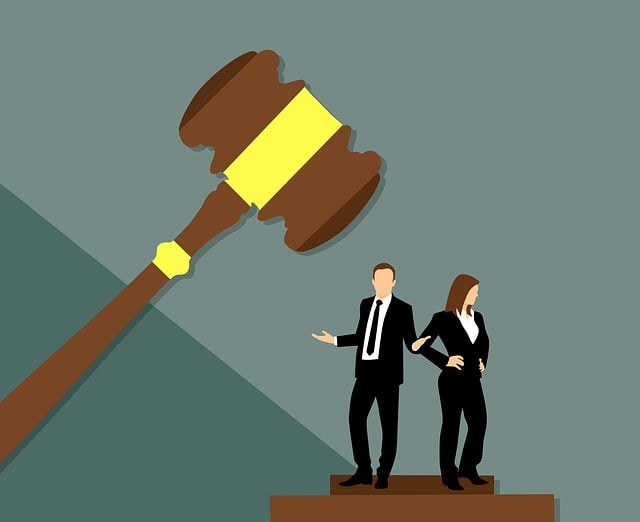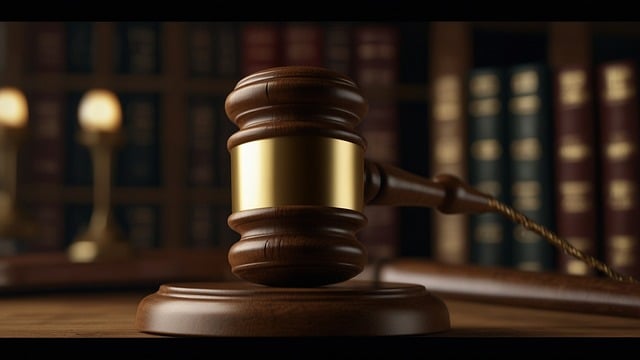Criminal Defense Attorneys play a vital role in guiding individuals through complex criminal procedure laws, ensuring they understand and navigate legal processes effectively. By mastering fundamentals like Miranda rights, bail hearings, pre-trial motions, and trial strategies, attorneys protect their clients' rights by challenging evidence and illegal searches. This strategic approach leads to successful outcomes, such as charge dismissal or avoiding indictment, upholding the integrity of the legal system, especially in white-collar and economic crimes cases. Understanding these basics is crucial for ensuring fair trials, advocating for clients' interests, and achieving justice.
Criminal Defense Attorneys play a pivotal role in safeguarding individuals accused of crimes. This article delves into their multifaceted responsibilities, exploring key aspects of criminal defense practice. We examine Understanding Criminal Procedure Law basics, from initial arrest to trial, emphasizing the importance of navigating complex legal processes effectively. Learn about the rights of the accused and discover proven defense tactics employed by these professionals to ensure fair trials.
- The Role of Criminal Defense Attorneys: Protecting the Accused
- Navigating Criminal Procedure Law: A Foundation for Defense Strategies
- Understanding the Legal Process: From Arrest to Trial
- Key Rights of the Accused: Ensuring a Fair Trial
- Effective Defense Tactics: Tools in the Attorney's Arsenal
The Role of Criminal Defense Attorneys: Protecting the Accused

Criminal Defense Attorneys play a pivotal role in protecting the rights and interests of those accused of crimes. Their primary responsibility is to ensure that their clients understand and navigate the complexities of criminal procedure law basics, which are crucial for their defense. These attorneys act as advocates, providing legal counsel and strategic guidance throughout the process.
Understanding the intricacies of the justice system is essential for achieving favorable outcomes, including the complete dismissal of all charges or avoiding indictment in high-stakes cases. By mastering these strategies, Criminal Defense Attorneys can help their clients navigate a labyrinthine legal landscape, ultimately safeguarding their rights and freedom.
Navigating Criminal Procedure Law: A Foundation for Defense Strategies

Understanding Criminal Procedure Law is a cornerstone for Criminal Defense Attorneys. By mastering this legal landscape, attorneys can build robust defenses tailored to their clients’ unique situations. It involves navigating intricate rules and regulations that govern criminal investigations, arrests, charging decisions, and trials. This knowledge allows lawyers to challenge evidence, suppress illegal searches, and ensure fair treatment throughout the process.
Attorneys with a strong grasp of these fundamentals are better equipped to protect their clients’ rights and interests. An unprecedented track record of success can be achieved by those who strategically apply these principles, often avoiding indictment or securing favorable outcomes across the country. This expertise not only ensures the best possible outcome for the client but also instills confidence in the legal system’s fairness and integrity.
Understanding the Legal Process: From Arrest to Trial

Understanding the legal process is a cornerstone for any criminal defense attorney. It begins with an arrest, where police have probable cause to believe a person has committed a crime. Once in custody, the individual is read their Miranda rights, ensuring they understand their constitutional protections. This critical step sets the stage for everything that follows, from the initial bail hearing to pre-trial motions aimed at suppressing evidence or challenging the prosecution’s case.
The journey through the criminal justice system involves navigating complex rules and procedures, including discovery – where defense attorneys request and review evidence – and plea bargaining negotiations. Ultimately, the case proceeds to trial, whether a bench trial (without a jury) or a jury trial, where the attorney presents their client’s defense, cross-examines witnesses, and argues for an acquittal. For those accused of white-collar and economic crimes, this process can be particularly intricate, demanding a deep understanding of both criminal procedure law basics and specialized knowledge in these complex areas. An attorney with an unprecedented track record in successfully defending such cases is invaluable in navigating these challenges.
Key Rights of the Accused: Ensuring a Fair Trial

In any criminal prosecution, understanding the fundamentals of criminal procedure law is paramount for ensuring a fair trial. Key rights of the accused form the bedrock of this process, designed to protect individuals from arbitrary or unjust convictions. These include the right to remain silent, the right to an attorney, and the guarantee that charges must be brought with probable cause. Knowing and exercising these rights is crucial in navigating the legal system, especially for those aiming for a winning challenging defense verdict.
The ultimate goal of criminal defense attorneys is not just to achieve a complete dismissal of all charges but to advocate for their clients’ interests, ensuring procedural fairness at every step. By mastering the art of cross-examination, presenting compelling evidence, and employing strategic legal arguments, these professionals strive for extraordinary results—achieving verdicts that reflect justice and protect the rights of the accused.
Effective Defense Tactics: Tools in the Attorney's Arsenal

Criminal defense attorneys are equipped with a robust arsenal of tactics to mount an effective defense. Understanding criminal procedure law basics is paramount in navigating the complex legal landscape. By familiarizing themselves with procedural rules and rights, attorneys can strategically navigate high-stakes cases, ensuring their clients receive fair treatment.
One key tactic involves thoroughly examining evidence to uncover weaknesses or discrepancies. This meticulous approach allows lawyers to build a compelling defense strategy, potentially avoiding indictment for their corporate and individual clients. Effective defense also entails mastering the art of cross-examination, where attorneys probe witnesses to expose inconsistencies in testimony, thereby shaking the prosecution’s case.
Criminal defense attorneys play a vital role in protecting individuals accused of crimes, ensuring they understand their rights and receive a fair trial. By navigating the intricacies of criminal procedure law and utilizing effective defense tactics, these professionals safeguard justice and uphold the fundamental principles of a free society. Understanding the legal process from arrest to trial, along with recognizing the key rights of the accused, is essential for anyone facing criminal charges. In light of these factors, it’s crucial to seek knowledgeable representation to protect one’s interests in this complex landscape, especially when striving to grasp the basics of Understanding Criminal Procedure Law.






